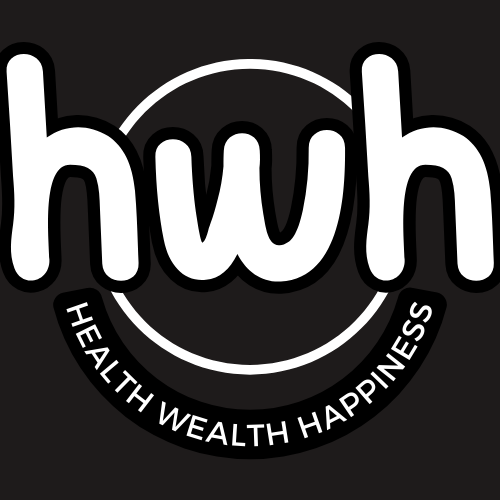Top 10 Productivity Books 2024
Are you ready to unleash your inner productivity powerhouse? Do you find yourself yearning for more hours in the day, wishing you could accomplish more with less effort? Well, buckle up because I'm about to share with you the top tips to turbocharging your productivity using the best ideas from the brightest minds.
In his book "The One Thing," Gary Keller emphasizes the power of focusing on one thing at a time to achieve extraordinary results.
HOW TO APPLY IN YOUR LIFE:
Identify Your Most Important Task (MIT): Each day, determine the one task that will have the most significant impact on your goals. Focus your time and energy on completing this task before anything else.
Eliminate Distractions: Clear your workspace of distractions and commit to working on your MIT without interruption. Turn off notifications, close unnecessary tabs, and set a timer to work in focused bursts (generally 25 min).
David Allen's "Getting Things Done" presents a comprehensive system for organizing tasks and increasing productivity.
HOW TO APPLY IN YOUR LIFE:
Capture and Clarify Tasks: Write down all your tasks and ideas to clear mental clutter, then clarify them into actionable steps to ensure nothing falls through the cracks. By capturing everything in a trusted system and breaking tasks down into manageable chunks, you can enhance your focus and productivity.
James Clear's "Atomic Habits" explores the power of small habits in creating remarkable change.
HOW TO APPLY IN YOUR LIFE:
·Implement Habit Stacking: Pair new habits with existing ones to make them stick. For example, if you want to start journaling, do it immediately after your morning coffee to leverage an existing habit.
· Use the Two-Minute Rule: Break down tasks into smaller, more manageable steps that take less than two minutes to complete. This reduces the barrier to getting started and increases the likelihood of follow-through.
Cal Newport's "Deep Work" advocates for the practice of focused, uninterrupted work to achieve peak productivity.
HOW TO APPLY IN YOUR LIFE:
· Schedule Deep Work Sessions: Block out dedicated time in your calendar for deep work sessions where you focus solely on challenging tasks that require intense concentration.
Charles Duhigg's "The Power of Habit" explores the science behind habit formation and how habits shape our lives.
HOW TO APPLY IN YOUR LIFE:
· Identify Habit Cues and Rewards: Pay attention to the cues that trigger your habits and the rewards that reinforce them. By understanding the habit loop, you can intentionally design new habits to replace unproductive ones.
Greg McKeown's "Essentialism" advocates for simplifying your life and focusing on what truly matters.
HOW TO APPLY IN YOUR LIFE:
· Say No More Often: Learn to decline non-essential tasks and commitments to free up time and energy for your most important priorities. Prioritize activities that align with your long-term goals and values.
Hal Elrod's "The Miracle Morning" introduces a morning routine designed to boost productivity and personal growth.
HOW TO APPLY IN YOUR LIFE:
· Start Your Day with Purpose: Set aside time each morning for activities that nourish your mind, body, and soul, such as meditation, exercise, journaling, and reading.
Carol S. Dweck's "Mindset" explores the power of a growth mindset v.s. a fixed mindset.
Do you believe your abilities are fixed or do you believe they can be developed through hard work, good strategies and mentorship?
Our mindset can dramatically influence our success in school, work, sports, the arts or any endeavor.
HOW TO APPLY IN YOUR LIFE:
· Embrace Challenges and Failure: View challenges and setbacks as opportunities for growth rather than obstacles to success. Adopt a mindset of continuous learning and improvement.
In his book "The 4-Hour Workweek," Timothy Ferriss challenges the traditional concept of work and advocates for maximizing efficiency and effectiveness.
HOW TO APPLY IN YOUR LIFE:
· Embrace the 80/20 Principle: Identify the 20% of activities that yield 80% of your results, and focus your time and energy on those high-impact tasks. By prioritizing these activities, you can achieve greater productivity and success while minimizing wasted effort.
In Nick Trenton's "Stop Overthinking," readers are provided with practical strategies to overcome the detrimental habit of overanalyzing and second-guessing.
HOW TO APPLY IN YOUR LIFE:
· Create a Decision-Making Framework: Trenton suggests developing a structured decision-making process to prevent over-analysis and indecision. This framework could involve setting clear goals, gathering necessary information, evaluating options based on predetermined criteria, and making a timely decision.
· Practice Gratitude and Positive Affirmations: Trenton recommends incorporating positive affirmations to reinforce self-belief and counteract negative thought patterns. Readers can then shift their perspective from dwelling on uncertainties to appreciating their strengths and opportunities, ultimately fostering a more productive mindset.
Conclusion: Find Your Own Productivity Path
Each of these productivity books offers valuable insights and strategies for enhancing your productivity and achieving your goals. Experiment with different techniques, adapt them to suit your unique circumstances, and continually refine your approach as you strive for greater productivity and fulfillment.
Remember, productivity is not a one-size-fits-all solution. It's about discovering what methods resonate with you and integrating them into your daily life to achieve your goals and live a more purposeful, productive life. So, dive into these books, extract the wisdom they offer, and embark on your own journey towards peak productivity and success.










